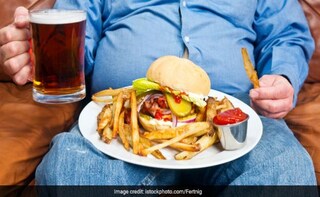According to a study published in BMC Nutrition, combining sweet drinks like juices or aerated drinks with a high-protein might make you fat and negatively affect energy balance. This combination may decrease the metabolic efficiency, which can further lead to fat being stored making you obese. The primary goal, according to the journal was to determine the extent to which simple addition of a small serving of a sugar-sweetened beverage to meals with different macro-nutrient compositions impacts appetite, energy metabolism and substrate oxidation.The study was conducted on 27 healthy weight adults (13 male and 14 female). Participants spent two full days in the sealed room. On one day they ate two meals containing 15 percent protein, and on the other they ate two meals with 30 percent protein. The meals consisted of bread, ham, cheese, potatoes and butter, and each provided 17 grams of fat and 500 calories.
Advertisement
For the latest food news, health tips and recipes, like us on Facebook or follow us on Twitter and YouTube.
Advertisement
